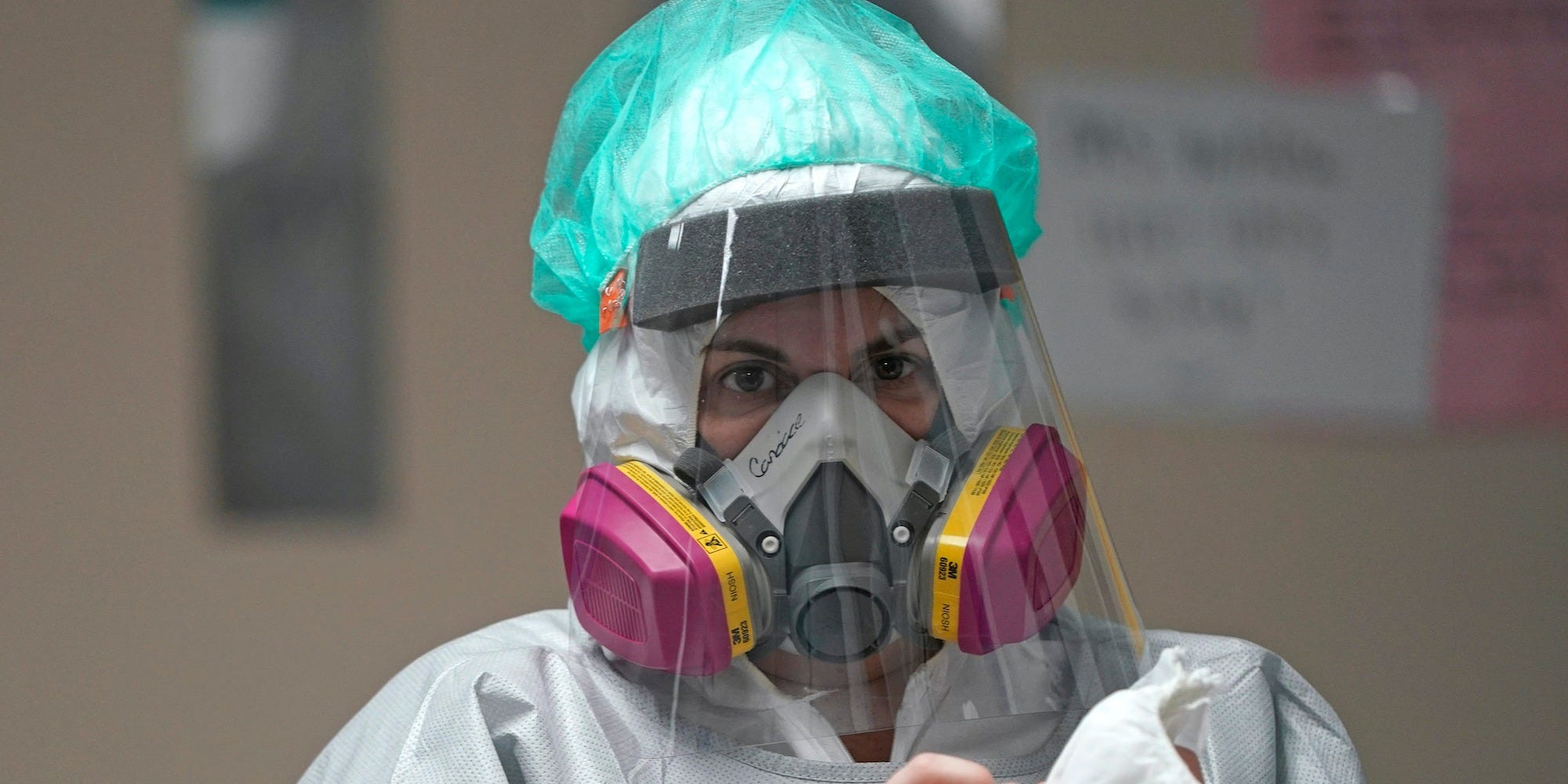- As cases of the coronavirus continue to soar in the US, medical workers have begun reporting shortages of Personal Protective Equipment (PPE) in reports not dissimilar from reported shortages earlier this year.
- Nurses in some parts of the US have reported using the same N95 masks for weeks at a time, according to a report from The Washington Post.
- Supplies are now are needed most by medical personnel in “primary care offices, nursing homes, prisons, and psychiatric and disability facilities,” according to the report.
- Jake Deutsch, a New York doctor who treated hundreds of COVID-19 patients and contracted the virus himself, credits proper equipment for protecting his colleagues who didn’t fall ill.
- “I know a lot of physicians that never got sick because they protected themselves and that has to be everyone’s first priority,” he told Business Insider.
- Visit Insider’s homepage for more stories.
As coronavirus cases surge to record highs in the US, reports not dissimilar from those earlier during the pandemic about shortages of Personal Protective Equipment (PPE) have emerged.
Nurses who spoke to The Washington Post said in some cases they were using the same N95 masks for weeks at a time. Others have taken to social media to express concerns about depleting PPE. Supplies are now are needed most by medical personnel in “primary care offices, nursing homes, prisons, and psychiatric and disability facilities,” according to the Washington Post.
In an interview with Business Insider, Jake Deutsch, a New York ER physician who treated more than 800 patients with COVID-19 and battled the disease himself, stressed the importance of PPE for medical professionals treating patients in emerging hotspots.
“Clearly, we learned a lot about the effectiveness of PPE, and now there’s more of it,” Deutsch, who treated more than 800 COVID-19 patients since his practice Cure Urgent Care began seeing COVID-19 patients in March. “It’s keeping calm and keeping your head above water is very important and understanding that PPE works.”
Deutsch, 47, contracted the virus in the middle of March and experienced bi-lateral pneumonia, which affects both lungs, and persistent low-grade fever, he told Insider. As the pandemic continued to take hold of New York in the months of March, April, and May, Deutsch said he and other medical personnel learned what was effective in stopping the spread. In particular, Deutsch said he learned PPE was necessary for doctors and nurses to mitigate their risk of catching and transmitting the coronavirus.
"I know a lot of physicians that never got sick because they protected themselves and that has to be everyone's first priority," he said.
However, doctors have reported trouble opening their practices due to a lack of necessary protective equipment, like gowns, gloves, and masks, The Washington Post reported. Demand for these supplies has also increased in other areas, like construction, as states reopen previously shuttered sectors of their economy and send people back to work, according to the report.
"A lot of people thought once the alarm was sounded back in March surely the federal government would fix this, but that hasn't happened," Deborah Burger, president of the National Nurses United, told the newspaper.
Hospitals are once again battling a surge of COVID-19 patients as cases soar in states like Arizona, Texas, and Florida, which had re-opened businesses with few social distancing requirements.
According to a report Friday from ProPublica and NBC News, hospitals in Houston, Texas, have become overwhelmed with COVID-19 patients and are now treating them in their emergency rooms rather than their intensive care units (ICUs). The Florida Agency for Health Care Administration on Saturday reported nearly 85 percent of the state's ICU beds are currently occupied.
The US on Friday again shattered its record of COVID-19 new reported cases of COVID-19 reported in a single day with more than 68,000 new cases reported according to a tally by The New York Times. Despite a recent decline in daily reported deaths from COVID-19, deaths from the disease are once again on the rise at more than 600 per day, according to a CNBC analysis.
In addition to protecting doctors, nurses, and other medical professionals with proper PPE, Deutsch stressed the importance of continued testing for both COVID-19 and antibodies as the "new normal" until a vaccine is developed.
"We're really ramping up our testing in order to keep people informed, and regarding antibody testing, there needs to be continued testing on a very high scale," he continued. "People need to know their status. The high presence of asymptomatic cases makes testing very important and it's going to continue to be."
Deutsch suggested people should receive tests every four weeks.










